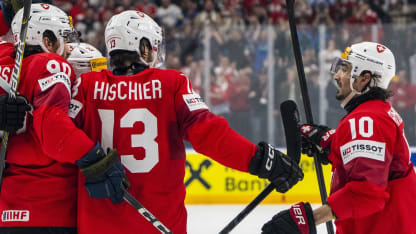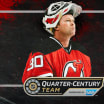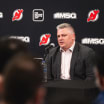In the ever-evolving story of Swiss ice hockey, few relationships embody the passing of generations quite like that of Andres Ambühl and Nico Hischier. One is a legend — a tireless warrior whose career spans nearly two decades of World Championships and Olympic appearances and years in Switzerland's top league. The other, a rising star and captain of both the New Jersey Devils and his national team, is leading a new era of Swiss talent onto the world stage.
Together, they represent not just past and future, but an overlap where mutual respect fuels team chemistry, and leadership is shared rather than handed down. In locker rooms and on the ice, their approach is shaping the identity of Swiss hockey we see today.
It has been a stunning journey, watching Hischier rise through the ranks and into stardom in the NHL. But initially, before anything else, at first, Nico was simply Luca’s little brother. It wasn't about Luca's brother with the extraordinary hockey talent; it was simply Nico, a little brother, looking up to his older brother.
That is how Ambühl first met Nico. Ambühl saw the admiration first hand while teammates with Luca Hischier, the eldest Hischier sibling, while playing together with HC Davos.
"The way I get to know him, it's like Nico is really looking up to Luca," Ambühl said. "And he still does. Nico is kind of, of course, Luca is good too, but Nico is the special talent. He's still always looking up to Luca."
He knew, of course, too of Hischier's extraordinary talents, a young kid from Naters turning heads at a young age, but neither brother would ever boast about it. Nico was always just Luca's brother.
"You heard about him," Ambühl said. "And then at some point you can see it and watch it, you knew that somebody or something big is gonna come. But first overall? That's unreal, but you didn't know that at the time, but you saw he has something special about him. It's pretty rare to have such a big talent, and we all knew and heard about that."




























